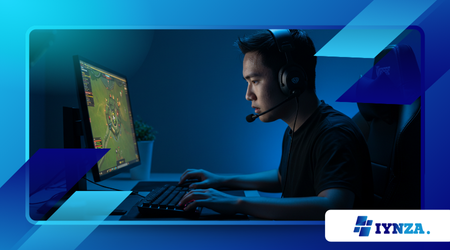How to Stop Raging in Competitive Games (Without Quitting Ranked)

Competitive games are meant to be intense, but sometimes that intensity crosses into something toxic. When losses pile up, teammates tilt, or mistakes repeat, even the calmest players can feel rage creeping in.
Anúncios
But if you want to improve long-term, learning how to stop raging in competitive games is one of the most important skills you can develop—without giving up on ranked mode entirely.
In this guide, you’ll learn why competitive rage happens, how it damages your gameplay and mindset, and what you can do right now to stay focused, composed, and in control. Because the goal isn’t just to win—it’s to win smarter.
Why Raging Happens (and Why It Hurts Your Game)
Rage is usually triggered by unmet expectations. You believe you’re supposed to win, but something disrupts that expectation—poor teammates, bad luck, personal errors. The result? A spike in frustration and emotional overreaction.
Raging doesn’t just affect your mood. It impacts decision-making, communication, and mechanical performance. Tilted players overextend, miss easy plays, and spiral into blame cycles.
A 2024 study by GameFocus Labs found that players who reported rage during ranked matches had a 23% lower win rate over a two-week span compared to those who didn’t.
So if your emotions hijack your strategy, it’s not about mental toughness—it’s about changing your approach.
1. Set Intentions Before Every Match
Going into ranked with vague goals like “just win” sets you up for disappointment. Instead, define a concrete focus that’s within your control.
For example: “I’ll focus on map awareness this game,” or “I’ll stay calm even if we fall behind early.”
These micro-goals redirect your energy away from the scoreboard and toward personal growth.
A League of Legends player set a goal to stay under three deaths per match. Even during losses, they felt more in control—and rage dropped significantly.
Read also: How to Stay Mentally Strong in Competitive Gaming
2. Build a Between-Match Reset Routine
Instead of diving into the next game tilted, use breaks to decompress. Stand up. Stretch. Drink water. Write a quick reflection on what went wrong and what you’ll change.
This physical and mental pause lowers your heart rate, resets your focus, and breaks the emotional carryover from one match to the next.
3. Mute Strategically
You don’t owe every teammate your full attention. If chat becomes toxic or distracting, mute them. Keep pings on for gameplay, but cut the noise.
This isn’t weakness—it’s self-preservation.
A 2025 behavioral analysis showed that players who used the mute function preemptively reported 38% fewer rage-related behaviors and improved overall focus.
4. Rethink Your Relationship With Loss
Losing is data. That’s all. It reveals flaws, tests patience, and helps you improve.
The difference between a rager and a ranked climber is how they interpret losses. One takes it personally. The other takes notes.
Write down one thing you learned after every loss. Over time, you’ll realize your biggest breakthroughs often come from your worst matches.
5. Recognize the Physical Signs of Tilt
Clenched jaw. Shallow breathing. Tense shoulders. Once you recognize these signals, you can intervene before rage takes over.
Take three slow breaths. Loosen your grip. Even a brief reset can de-escalate the emotion and bring you back to center.
A VALORANT player kept a sticky note on their monitor: “Check your breath.” That one habit helped cut mid-match tilt and boosted focus under pressure.
A Statistic That Hits Hard
Raging is like pressing harder on the gas when you’re skidding on ice. It feels like control—but it makes everything worse. The fix isn’t force—it’s adjustment.
According to MatchMind Analytics, players who self-report rage at least once per session are 32% more likely to lose their next match within 15 minutes due to emotional overcommitment or early surrender.
Rage isn’t a release. It’s a self-sabotage loop.
If your mindset is the one thing you can always control—why let the scoreboard take that away from you?
Conclusion
You don’t need to quit ranked to stop raging in competitive games. You need better tools, better awareness, and a new relationship with failure.
With practice, calm becomes a skill. And like aim or map knowledge, it grows every time you use it.
So the next time rage knocks—breathe, reset, and remember: it’s not about being perfect. It’s about being composed enough to play well no matter what.
The players who climb don’t avoid pressure—they learn to stay grounded when it hits. That mindset doesn’t just win more games—it makes the entire process of playing feel better. If you can manage your emotions in a high-stakes match, you’re building discipline that goes far beyond the screen.
Mastery begins not when everything goes your way—but when you play your best anyway. That’s what separates the tilted from the focused, the frustrated from the evolving, and the casuals from the competitors.
FAQ – How To Stop Raging in Competitive Games
1. Can raging actually affect in-game performance?
Yes. Rage impacts focus, reaction time, and decision-making, leading to poor plays.
2. Should I take a break from ranked if I’m tilting often?
Short breaks can help reset perspective, but building habits mid-ranked is also important.
3. Is it okay to mute all teammates by default?
Yes. Many high-ELO players mute preemptively to stay focused.
4. Why do some people rage more than others?
Personality, stress levels, and mindset training all play a role.
5. Can raging be a sign of something deeper?
Sometimes. Chronic frustration may reflect outside stress or unrealistic expectations.
6. What if I rage but don’t say it in chat?
Internal rage still affects your gameplay—even if silent.
7. Does playing with friends reduce rage?
Often, yes. Familiar teammates reduce tension and increase communication.
8. Are some games more rage-inducing than others?
Yes. Fast-paced or team-dependent games tend to trigger stronger reactions.
9. Should I quit ranked if I can’t stop raging?
Not necessarily. Implement tools first. Quit only if it hurts your well-being.
10. What’s one thing I can do right now to improve?
Set a calm goal for your next match—something unrelated to the score.
